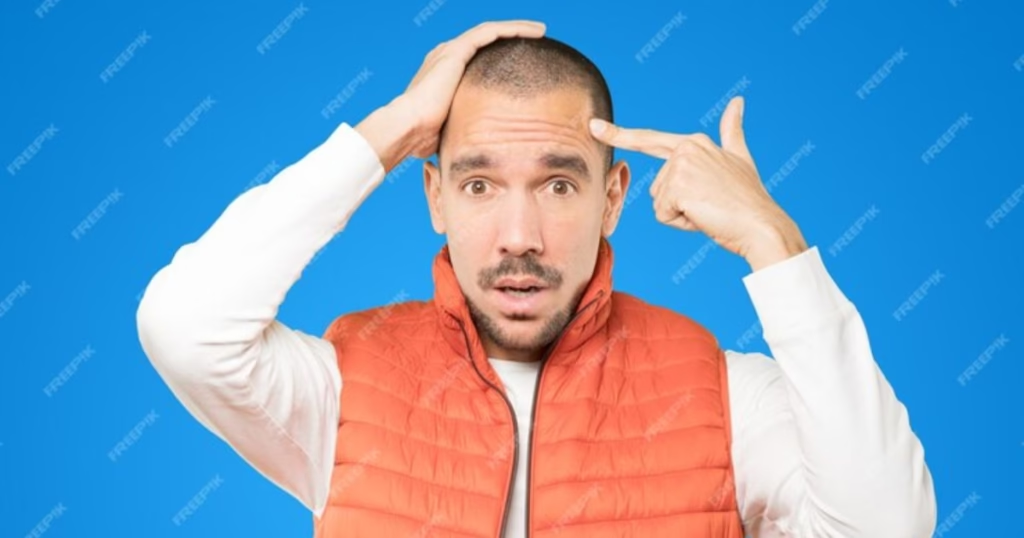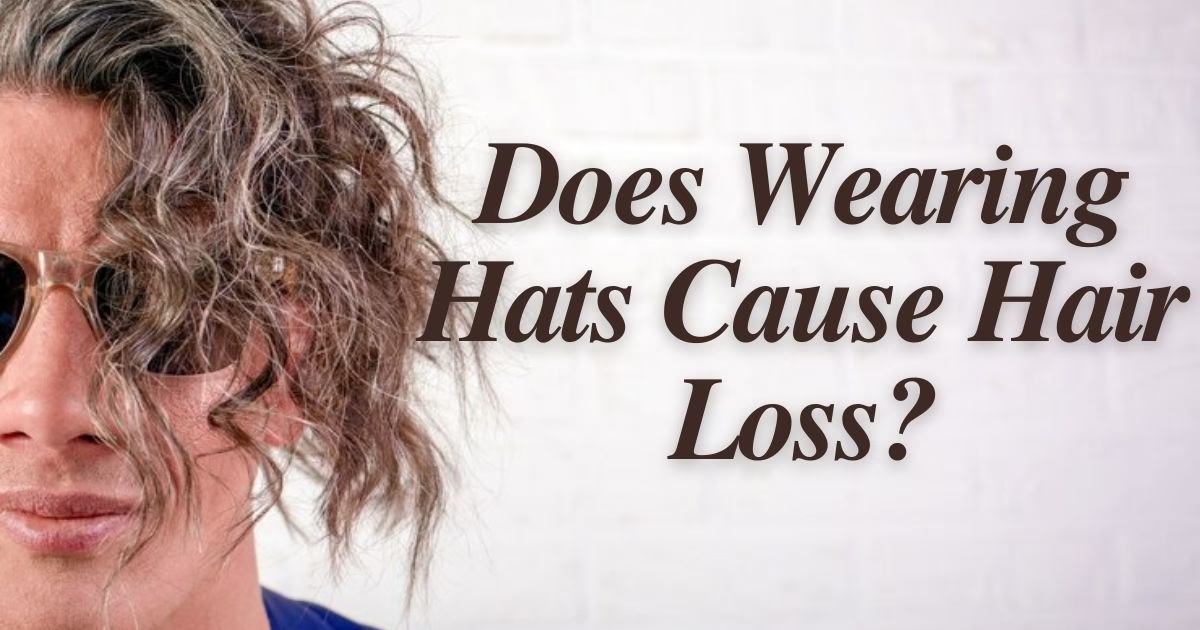Hair loss is a common concern for many people, and with it comes a slew of myths and misconceptions. One of the most persistent ones is whether wearing hats can cause hair loss. Let’s break it down step by step to separate fact from fiction.
Hats are not responsible for hair loss directly. Wearing a hat that is excessively tight, may cause friction or harm to hair strands, which could result in hair breakage but not permanent hair loss. Such problems can be avoided with proper scalp care and hat sizing.
Does Wearing Hats Cause Hair Loss Or Baldness?
Wearing hats does not cause hair loss or baldness, as they do not affect genetics, hormones, aging, stress, or medical conditions.
Blood flow to the scalp is not affected by hats, and traction alopecia is rare. Wearing hats for style or sun protection is safe, but keeping them clean is crucial to avoid scalp issues.
Scientific Studies shows that wearing hats do not directly cause hair loss, as they can cause various types of hair loss, such as Androgenetic Alopecia, Telogen Effluvium, and Traction Alopecia.
Maintaining scalp health and proper hygiene is more important for preventing hair loss, as hats do not directly impact hair follicles or blood flow. Hair experts agree that hats are not a contributing factor to hair loss, and it is essential to avoid wearing hats to protect your hair.

Types of Hair Loss
1. Androgenetic Alopecia (Male and Female Pattern Baldness)
Androgenetic alopecia is a common hair loss condition that affects millions throughout the world. Genetics and greater sensitivity to DHT cause signs such as receding hairline and thinning. Medications, surgical procedures, and lifestyle modifications are all possible treatment options.
2. Alopecia Areata
Alopecia areata is an autoimmune disorder that causes hair loss when the immune system attacks hair follicles. Causes include thyroid problems and a genetic tendency. Corticosteroid injections, topical creams, and light therapy are all possible treatment options.
3. Telogen Effluvium
Temporary hair loss brought on by stress or trauma, such as after surgery, childbirth, sickness, dietary deficits, or pharmaceutical use, is known as telogen effluvium. Dietary supplements and stress management are two possible treatment approaches. Usually, hair grows back in six to nine months.
4. Traction Alopecia
Excessive hair tension results in traction alopecia, which causes thinning and hair loss. Braids, extensions, and tight ponytails are among the causes. Style modifications, hair growth products, and avoidance are available as forms of treatment.
5. Anagen Effluvium
Rapid hair loss during the active growth phase, known as anagen effluvium, is brought on by chemotherapy and hazardous chemical exposure. Abrupt hair loss and complete scalp involvement are among the symptoms. Minoxidil and cooling caps are two possible treatments.
6. Cicatricial Alopecia (Scarring Alopecia)
Cicatricial alopecia is a hair loss condition caused by inflammation or infections, resulting in scar tissue and preventing hair growth. Symptoms include bald spots and scalp issues.
Treatment options include medication like corticosteroids or surgery like hair transplantation. Early diagnosis and proper medical care are crucial for effective management of this condition.
7. Trichotillomania
Trichotillomania is a psychological disorder causing individuals to comulsively pull out their hair, often due to mental health conditions like anxiety or stress. Symptoms include irregular bald spots and uneven hair growth. Treatment options include cognitive-behavioral therapy and medication.
Read More: Does Creatine Cause Acne?
Conclusion
Wearing hats does not cause hair loss. While tight or poorly fitting hats can lead to temporary hair issues like breakage, they are not a root cause of permanent hair loss.
Hats are a practical accessory that protects against the sun and adds style. Just ensure you’re wearing them comfortably and maintaining a healthy hair care routine.
People Also Ask
No, wearing hats will not cause your hair loss. Hair loss is typically caused by genetics, hormones, or medical issues, not by wearing hats.
Wearing overly tight hats all the time can cause traction alopecia, a kind of hair loss caused by excessive pulling on the hair. However, this is uncommon and usually occurs with tight haircuts, not headgear.
No, caps do not prevent your scalp from receiving air. Your hair follicles receive oxygen from your blood, not the air, so wearing a hat does not promote hair loss.
Wearing unclean hats can make your scalp dirty, resulting in dandruff or illnesses. These concerns can weaken your hair, so keep your headwear clean.
Yes, it’s generally acceptable to wear a hat every day. Just make sure it’s not too tight and that you keep it clean to avoid scalp issues.









Leave a Reply